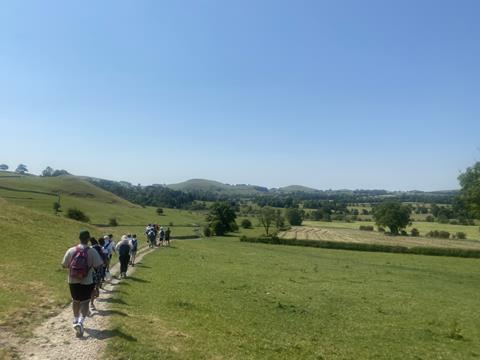Wayne Holder, educational visits coordinator at Alderman Richard Hallam Primary School in Leicester, talks us through his organising process for school trips, starting from the initial idea, through to evaluation.

Starting out: coming up with ideas

We start the initial discussions at the end of the summer term, as year groups begin to have conversations about the visits that they will be looking to run for the next academic year. We try to ensure that where possible, visits fit with topics or the area of the curriculum that each class is working on. These ideas are then shared with parents and carers as part of welcome letters for the upcoming year to give an overview of some of the great things their children can look forward to when they arrive back after the break. I will also work with teachers in each year group to see if there are trips that haven’t fit in as well previously, and I’m always happy to have discussions about trying new places.
This is where our previous analysis and evaluation comes in handy, allowing us to know what’s worked well in the past, how some trips could be better and how others may fit in with differing topics in the future.
This article was published in the annual Learning Outside the Classroom Yearbook, which is packed with practical advice, thought-provoking content, inspiring ideas, and how to find the best help and support for organising educational visits.
In advance: booking, letters and paying
Teachers will then discuss dates with me which kickstarts the planning process. Office staff will help to see what dates are available for the visits and do the admin work of preliminary booking tickets, coaches etc. Teachers will then start drafting letters to go home to parents and carers.

Discussions at this point will also be taking place with myself and the teacher to allow us to have an idea of how the trip will go ahead, including staffing. Once this information is known and bookings are in place, letters will be sent to parents and carers to keep them updated with how much the trip will cost. Keeping costs down is something that we are always looking to do, including calling multiple coach companies to try to get the best price for the best service. We truly believe, like all schools, that visits can enhance learning so much, so anything we can do to help all children experience time outside the classroom is worth it.
Planning and risk assessments
When it comes to planning, I use the STAGED approach (Staffing, Transport, Activity, Group, Environment, Distance). The STAGED approach is really a breath of fresh air and helps with collaborative planning, staff all take so much more ownership of the trip as a whole and the visit leader finds it a lot easier to get the points of the planning and risk assessments across to those involved, but also down onto paper. I am always available to support with any documentation required and can work with staff to build a suitable risk assessment.
Keeping costs down is something that we are always looking to do, including calling multiple coach companies to try to get the best price for the best service.
The visit itself
When it comes to the actual visit, I will help to get items such as first aid kits ready and where possible, will pop down to the coaches or classrooms on the day for any last-minute advice and checks. I’m available to call during the visits, as sometimes staff will want advice on something unexpected, however our staff are very good and rarely need me. In my opinion, it’s always good to be available at all times, as you have the knowledge of the trip.
Sometimes I will go on trips as well, either to monitor or to help. It’s always nice to get out and enjoy the visits with the children as you have signed them off; it’s great to have a hands-on approach too.

Post visit: discussion and evaluation
After the visit, I always ask staff to ensure they write up how the trip went. It can be a few simple bullet points, but if you think about the planning for the next year as mentioned previously, it really helps to inform how the trip went, what worked well and how it could be improved.
We truly believe, like all schools, that visits can enhance learning so much, so anything we can do to help all children experience time outside the classroom is worth it.
Staff usually discuss how the trip went and debrief naturally, but capturing those discussions can be so useful. I try to check in with how the trip went, if not on the day then on the subsequent days, to to gain further information as well as help to inform any further ideas, or if staff need anything else that I can help with.
We all have a school trip that we remember, and these opportunities stick with us and children for the rest of our lives. We just want to do the best for the children to give them these wonderful opportunities that they may otherwise not experience - the work we must do to ensure they can have these is worth it. Our role as an EVC is to do this to allow such wonderful events to take place.
Wayne Holder has more than 16 years’ experience of working in schools and has been an EVC for around seven years. In his time, he has supported multiple trips for both primary and secondary schools ranging from local area walks to residentials in Europe.










